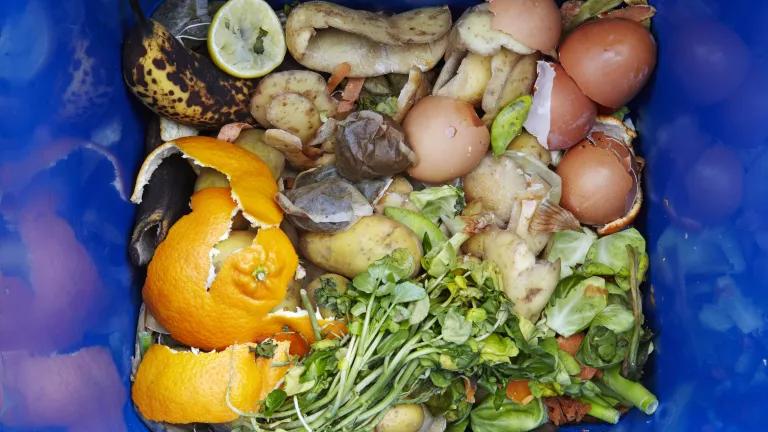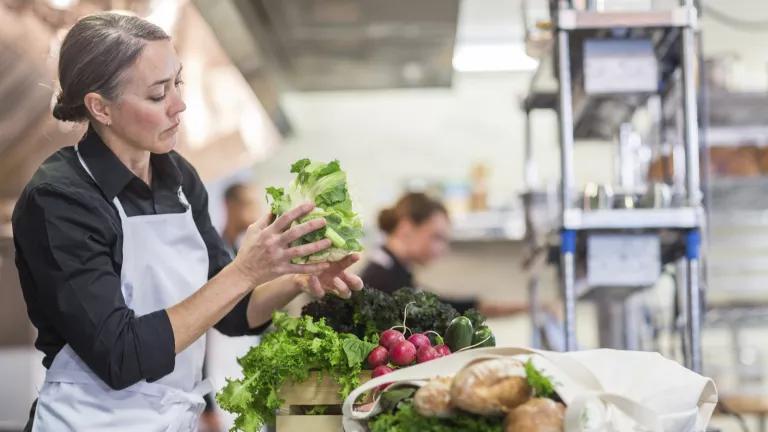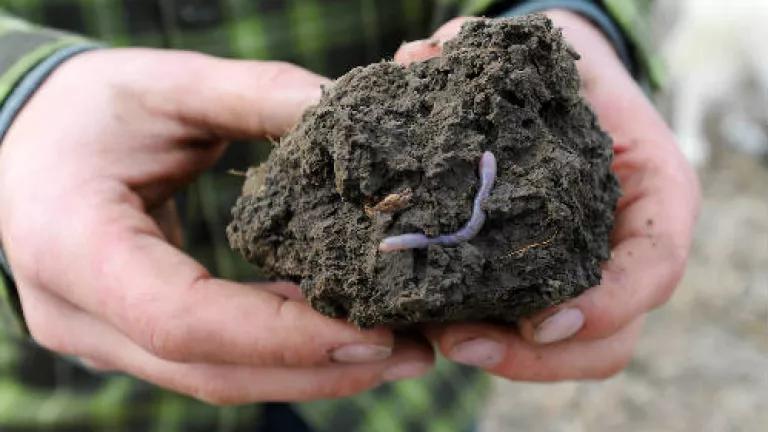
The EPA and USDA made a bold move today that we can all be proud of: they announced a national goal to reduce food waste by 50% by the year 2030. As EPA Administrator Gina McCarthy bluntly put it in the announcement linked above, "Let's feed people, not landfills". We applaud EPA and USDA for their leadership in establishing an ambitious, first-ever goal that we can all rally around.
With the goal now in place, the rubber will really hit the road as we work to make that 50% reduction a reality. As we consider strategies for getting from here to there, American policymakers would be wise to take a few pointers from their counterparts in France.
Earlier this year, the French released a comprehensive set of policy proposals to sharply reduce food waste (see our English-language distillation of the proposals). Developed under the auspices of their ministries of agriculture and the environment, these proposals build upon the 2013 National Pact Against Food Waste goal to cut French food waste in half by 2025. They include 36 widely varying measures[i] and we've highlighted a few favorites here that the U.S. may want to consider as well.
- A "hierarchy" for disposing of wasted food: The French are serious about keeping food from being incinerated or landfilled and steering edible food to people in need. This proposal would establish a hierarchy for how wasted food should be handled. By 2025, any organization or business producing food waste above a given threshold will be required to direct those resources to their highest possible use in the following order: recovery of edible food for human consumption, use as animal feed, industrial uses, anaerobic digestion, and composting. In the U.S., most wasted food is landfilled and once there, emits the powerful greenhouse gas methane. Suffice it to say, we would benefit from a comprehensive policy to get food out of our landfills.
Photo courtesy of Bing.com
- Create a dedicated public agency to implement food waste policies: Inspired by the Waste and Resources Action Program (WRAP) in the United Kingdom, the proposed agency would direct and lend focus to a wide range of national food waste efforts in France.
- Measure food waste: The French recognize that new policies need to be rooted in solid data on how much food is actually going to waste. One of the first missions of a new national food waste agency would be to improve research on food waste in France. We face a similar dearth of good data about food waste in the U.S. (particularly at the farm level).
- Ban supermarkets from throwing away edible excess food: Under this proposal, retailers would have to donate unsold edible food to non-profits that want to receive it. When not edible, food waste would have to be recycled (for instance, through composting or anaerobic digestion). Supermarkets would also be encouraged to create "zero-waste sections" where they sell products close to their expiration dates.
- Adjust portion and packaging sizes: The French proposal points out that significant consumer food waste is driven by large portion sizes, all-you-can-eat dining formats, and very large package sizes for grocery products. To address this, the French government would encourage voluntary good practices in the retail and food service sectors such as more appropriately sized plates, portion sizes, and packaging options.
- Improve use of expiration dates: The French proposal would ban expiration dates on products such as fresh produce, wine, bakery, vinegar, salt, sugar and sweets. France would also push for a longer list of products that don't require "best before" dates at the European level.
- Educate school children, foodservice professionals and the public: Communication is another key piece of the food waste puzzle. A cluster of proposed measures would foster food waste teaching curriculum from elementary school through high school, training for foodservice workers, and innovative campaigns that engage the broader French public in understanding and reducing food waste.
As we embark on this new commitment to food waste reduction, now is a great juncture to learn from the best of what is being done overseas. If you'd like to learn more about the French roadmap, please check out our new distillation of the French policy proposal.
At the same time, we all need to take action in our own homes and communities to value our food and keep it from going to waste. My NRDC colleague, Dana Gunders, has a new "Waste-Free Kitchen Handbook" coming out later this month to help consumers do just that. Check out her blog to hear Dana's take on the new national goal and practical ways that all of us who eat can become food waste warriors.
__________________________________________________________
[i] Readers should note that six initial measures including the requirement that grocery stores donate surplus food passed both houses of the French Parliament earlier in 2015. Thereafter, the French Constitutional Council raised procedural concerns, making it necessary for the measures to return to Parliament for reconsideration. If passed by Parliament again, they would return to the Constitutional Council for approval and then go to the President's desk where they would become law.



